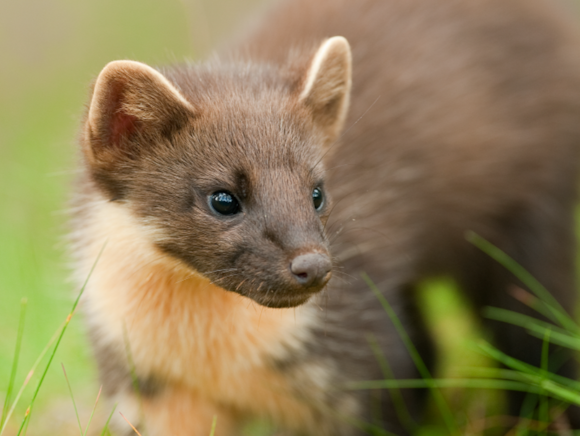National Highways has announced a partnership with local conservationists in the south west to help protect pine martens, which have recently been reintroduced to the area after more than a century.
As part of the Two Moors Pine Marten Project, 15 of the species were returned to the south west of England last September, having gone extinct in the region more than 100 years ago due to habitat loss and persecution.
Conservationists at Devon Wildlife Trust recently celebrated the first births of pine marten kits following the pioneering reintroduction project.
However, coming into contact with roads and fast-moving traffic is the highest risk factor for this species in the UK - this is particularly true of the south west, where the road network has been built in their absence.
A small number of pine marten deaths have been recorded on Devon’s roadsides in recent months, prompting action to monitor the animals’ crossing movements and provide safer crossings.
National Highways, Devon Wildlife Trust, Animex International and Devon County Council have installed cameras in locations around the A38 and A380 to understand their movements.
Drivers are advised to be wary of animals crossing around the Haldon Forest area.
Ben Hewlett, National Highways’ senior environmental advisor, said: 'To assist our conservation partners in Devon, we are working with them to identify any movement patterns of the recently released pine marten population, which could help pinpoint any mitigations needed in the long term.
'This particular area is abundant with wildlife, such as deer, otters and dormice, and we’d also like to raise awareness with the travelling public making their journeys along these routes – for their own safety and the safety of wildlife in these locations.
'Animals can use culverts under our roads, and by installing cameras, we can help to plot their movements and record particular locations where they are likely to look for crossing points.'
As a predator of easy to find prey, pine martens play a crucial role in woodlands by maintaining a check on abundant animals, thus leaving space for rarer species to thrive.
Ed Parr Ferris, conservation manager for the Devon Wildlife Trust, said: 'Pine martens returning to the South West is an exciting demonstration of how we can reverse nature’s decline. But we have altered our landscapes tremendously and we need to keep finding solutions to give wildlife the ability to thrive. We know that wildlife will cross roads safely using culverts, underpasses and bridges, where they are available and easy to find and use.'
Alongside the pine marten initiative, and as part of a Network for Nature partnership, National Highways has also invested in Devon Wildlife Trust’s Creating Species Highways project, an initiative aimed at developing a strategic approach to safe wildlife road crossings.
The Two Moors Pine Marten Project, led by Devon Wildlife Trust, is a partnership between Dartmoor National Park Authority, Devon Wildlife Trust, Exmoor National Park Authority, Forestry England, National Trust, Somerset Wildlife Trust and Woodland Trust with support from the National Lottery Heritage Fund.
Photo: Terry Whittaker/Devon Wildlife Trust






